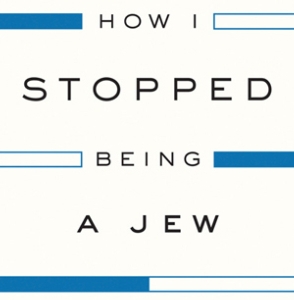My son's joined a football team. He informs me that at lunchtime he plays for ‘the Christian team’ at school.
Now, I was slightly hesitant about this. In the past he's explained, as solemnly as only an eight year old can, that he's been spying on the forces of evil, running away from the chickens of doom and repairing his treehouse after an earthquake. So I wasn't quite sure how seriously to take his news, that the teams were fixed and he couldn't play on the same team as some of his friends. They were on the other team.
The Muslim team.
Quite apart from my doubts about the wisdom of football teams being divided on religious lines, I now had to answer my son's questions about why he had to play on the Christian team at all. As he pointed out to me, he's not a Christian.
"Because Christians believe in God, don't they Dad? And I don't." His face fell. "Does that mean I can't play football at all?"
I’m a teacher, so any opening like that has potential. If he was older, it might have led into a discussion of how it often seems that those of faith prefer any belief over none. It might have led to asking him if it was fair that those without religious beliefs are sometimes excluded from the public forum. But that wasn’t what he wanted or needed and for once I realised that.
Reassurance and gentle questions revealed the full story. Thankfully this isn’t a school policy, just how the pupils have chosen to organise their lunchtime sports. There was no questionnaire about his religious beliefs or lack thereof. It was both simpler, and in some ways more depressing. The assumption was that because he’s white, he’s also Christian. Religion was being used as a proxy for race. I don’t know which team a kid would have been expected to play for if he or she – because some of the girls play football too, which is progress from my school days – was Sikh, or both white and Muslim. In our area it’s probably relatively rare. I also suspect most of the white parents are more relaxed than we are about it being assumed that their children are Christian.
I’m proud that my son is confident to say that he doesn’t believe in any god, with or without a capital letter. I’m disappointed that he goes to a school where he has to say it at all, that so much is assumed about him because of the colour of his skin. I’m disappointed that it’s not just other children who are surprised to hear an eight-year-old say he’s not religious; some of the teachers are too. But I don’t know what to do about it. The whole problem with religious practices in school – as opposed to education about religions – is that by them being part of the scenery, choosing not to take part means you are excluded from everyday life. Non-religious children shouldn’t have to miss part of assembly, or not get a chocolate treat on the last day before the holidays, or argue about their football team. But that’s the system we’re in.
Yes, he’s still playing football at lunchtimes. Yes, he’s still playing on the nominally Christian, actually White British team. No, he’s still not happy that he should have to stay quiet about his beliefs to take part.
And nor am I.

